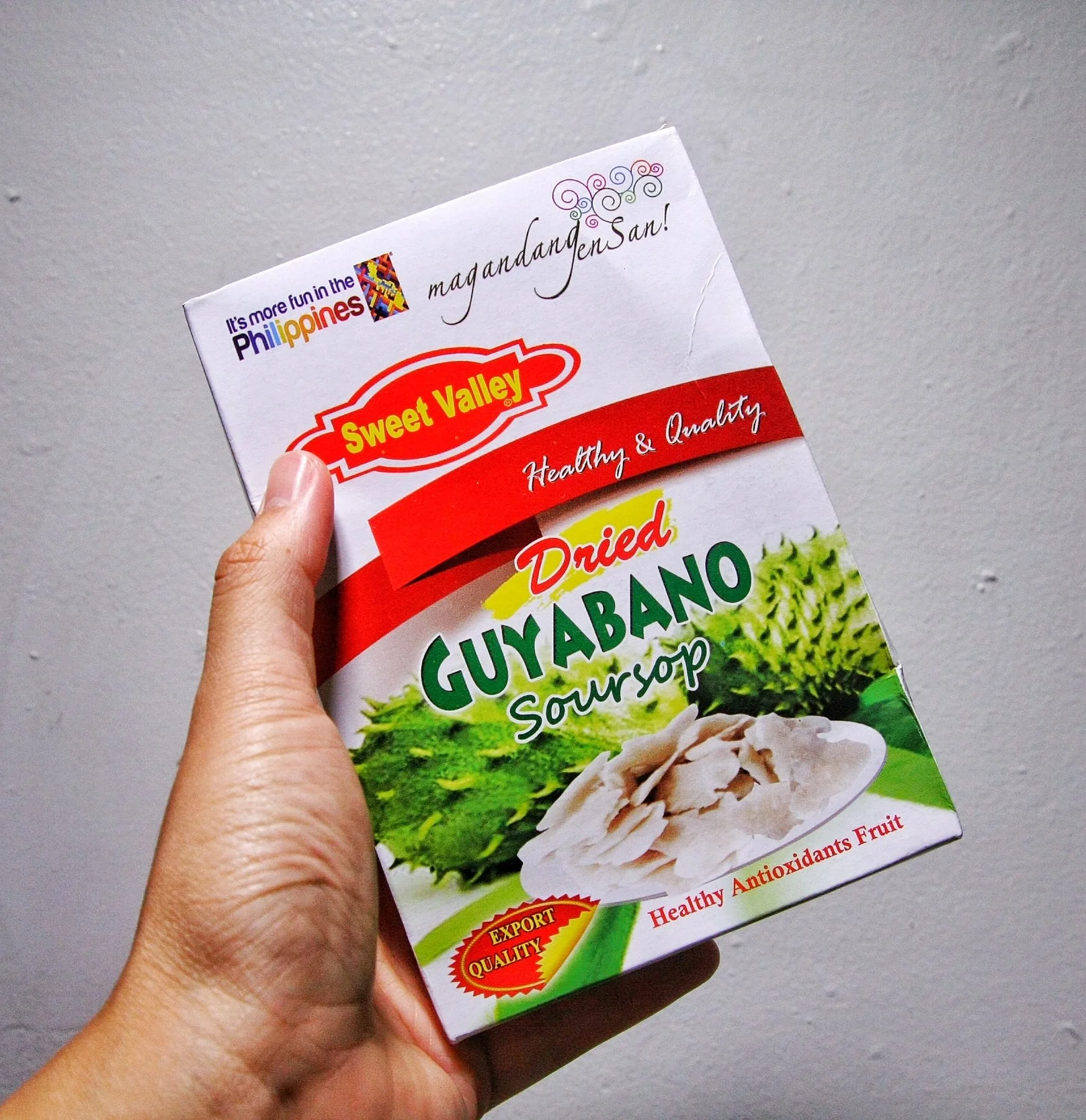My friend went to the Philippines to visit family members and came back with dried fruit, called soursop (aka: Graviola, guyabano, custard apple). “You couldn’t have gotten me some dried mango?” I complained. He said, “Just try it." The Soursop wasn't as visually appealing as dried mango, but you should give everything a try...at least once.
Sousop can be found in the Caribbean, Central/South America, and Southeast Asia. Although it is difficult to find fresh in the U.S., it has been popping up recently in its dried version. Soursop is being used as flavorings in candies, teas, and ice creams. Its taste can be described as a cross between pineapple and strawberries with notes of citrus. It has a creamy texture, similar to that of a banana. For years soursop has attracted attention when claims from the natural medicine industry touted the fruit for its health benefits, most notably it’s alleged ability to fight cancer. Some studies done in labs found that the chemicals contained in graviola may have been able to kill certain cancer cells. These claims have not been substantiated as its ability to kill cancerous cells has never been studied on human cells or in clinical trials. Although soursop’s use as a miracle cure for cancer remains in the jury, soursop does contain large amounts of vitamin C, powerful antioxidants, as well as lots of fiber, to help maintain the feeling of fullness as well as keep bowel movements regular.
This new product that I found is the dried version of the tropical fruit. If you are one of those people that love trying new exotic foods, you may want to add this to your bucket list of interesting foods you have tasted. Note some caution. Although, it is a fruit that is full of healthy vitamins, you do want to watch your intake and stick to ¼ cup or less, for two reasons. First of all, dried fruit in general, is very high in sugar, as all the water and fiber has been removed in the dehydrating process, leaving only the sugars and some vitamins behind. Second, eating soursop in excess may have some toxic effects by killing some nerve cells in the brain and causing other neurological issues. Because we don’t know the exact amount that is considered toxic, it is best to stay safe and stick to ¼ cup at a time, several times a week or less.
Sources:
Dai Y1, H. S. (2011). Selective growth inhibition of human breast cancer cells by graviola fruit extract in vitro and in vivo involving downregulation of EGFR expression. Nutrition and Cancer, 795-801.
Torres MP1, R. S. (2012). Graviola: a novel promising natural-derived drug that inhibits tumorigenicity and metastasis of pancreatic cancer cells in vitro and in vivo through altering cell metabolism. Cancer Letters, 29-40.

